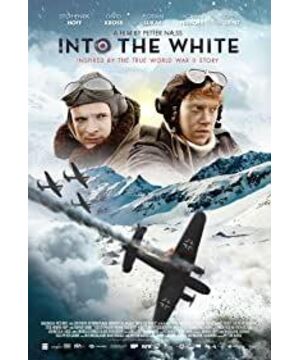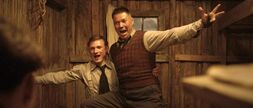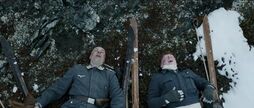In war, individuals are tools for fulfilling the will of the state, but they are human beings in the final analysis, with joys, sorrows, sorrows, and their own distress and reasons.
History refutes the times with coincidences, although the evidence does not stand alone: the elimination of demonized propaganda is the premise, the available language is necessary, the disclosure of personal emotions and thoughts is the key, and cultural differences cause barriers but also become a resource for communication .
Several games are quite exciting. The captain who puts down the only gun first is a loser in life and a hero in human nature. Obedience to orders is the duty of soldiers, but there are no orders that require them to be friends. The young fascist fanatic was mostly in a coma, his broken arm was amputated, and Hitler's biography was burned as lumber. After paying this price, the German young man's life was saved, which is the best metaphor.
The big man didn't escape his fate in the end, Smith didn't come to visit, and the German captain didn't answer the ideal question about staying in Norway. They cannot escape the times, which is the greatest sorrow. At the end of the film, the British officer's spectacle is his supreme respect and friendliness to his former adversary.
In those blood-stained years, I walked into the white winter without looking back.
When the building is about to fall, there are two top beams.
In the comics is another reality.
"Flying over the Rainbow" under the aurora is an ode to them.
Farewell, weapons! Go to his war!
View more about Into the White reviews











